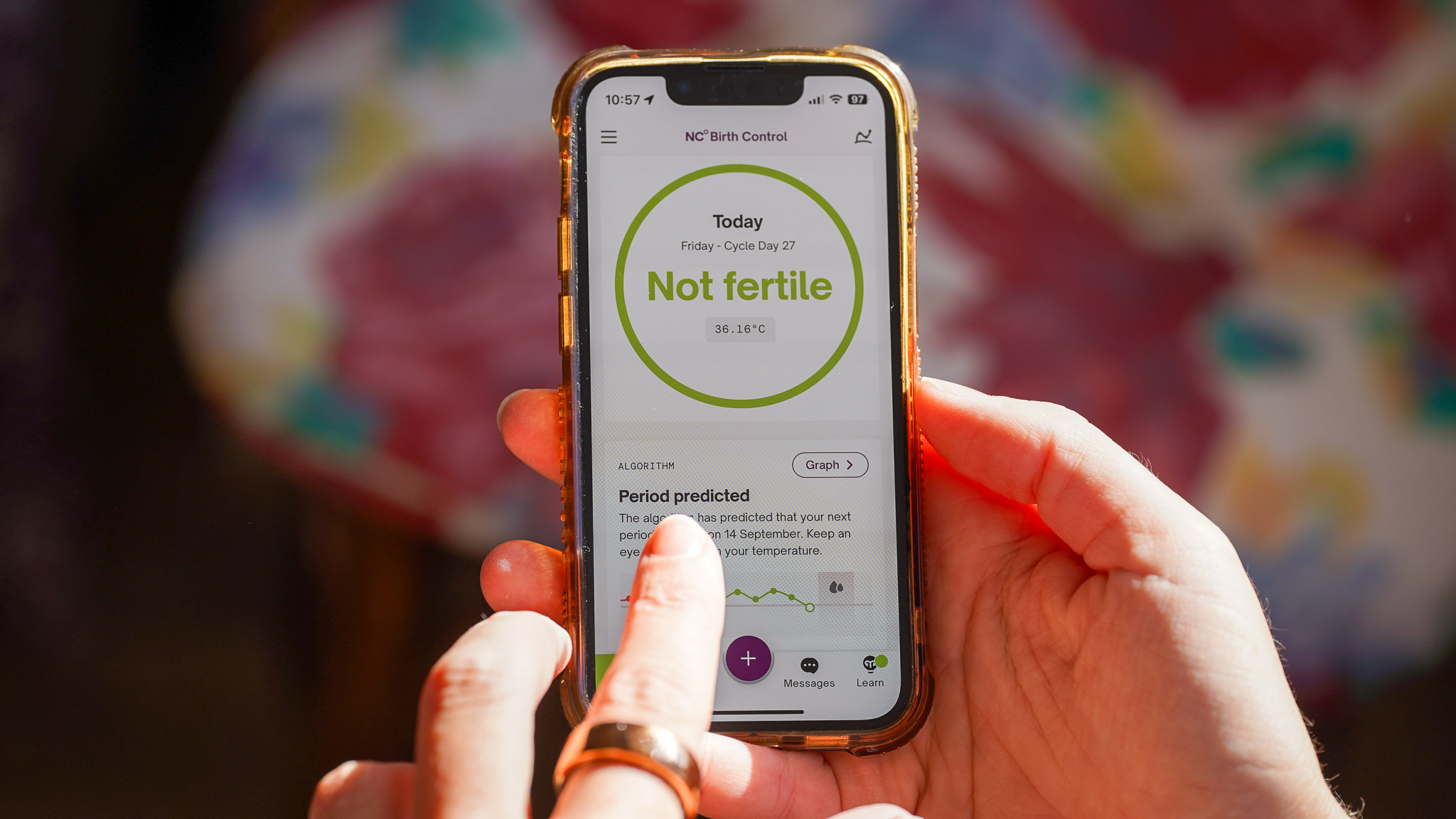
The Oura Ring Gen 3 is a brilliant wearable for those who, like me, don’t like wearing smartwatches to bed. Like more smart rings, the Oura Ring tracks more than just sleep, though. It automatically recognises exercises, tracks stress and provides you with a resilience score, just to name a few.
However, it’s Oura Ring’s cycle-tracking features that are one of the key reasons I was drawn to it, especially with its seamless integration with the Natural Cycles app. What sets it apart is how it tracks my body temperature while I sleep, which is a superb feature for anyone using fertility awareness methods.
The ring automatically captures temperature variations throughout the night, which helps pinpoint hormonal changes during the menstrual cycle. Over time, the Oura Ring starts to predict cycle phases, like when ovulation is likely to happen and even the start of my next period.
What makes the Oura Ring even more impressive is its integration with Natural Cycles, an app specifically designed for birth control and fertility tracking. Instead of taking my temperature with a regular thermometer each morning (which can be easy to forget or mess up), the Oura Ring does it for me automatically. It syncs with Natural Cycles every morning, delivering more accurate temperature data directly to the app.
Natural Cycles then uses this data, along with its own algorithm, to determine whether I’m in my fertile window. This takes a lot of guesswork out of the process, whether you’re looking to conceive or using it as a natural form of contraception. The app is FDA-cleared for birth control, which gives me a lot of confidence in its reliability – especially when paired with the always-on nature of the Oura Ring.
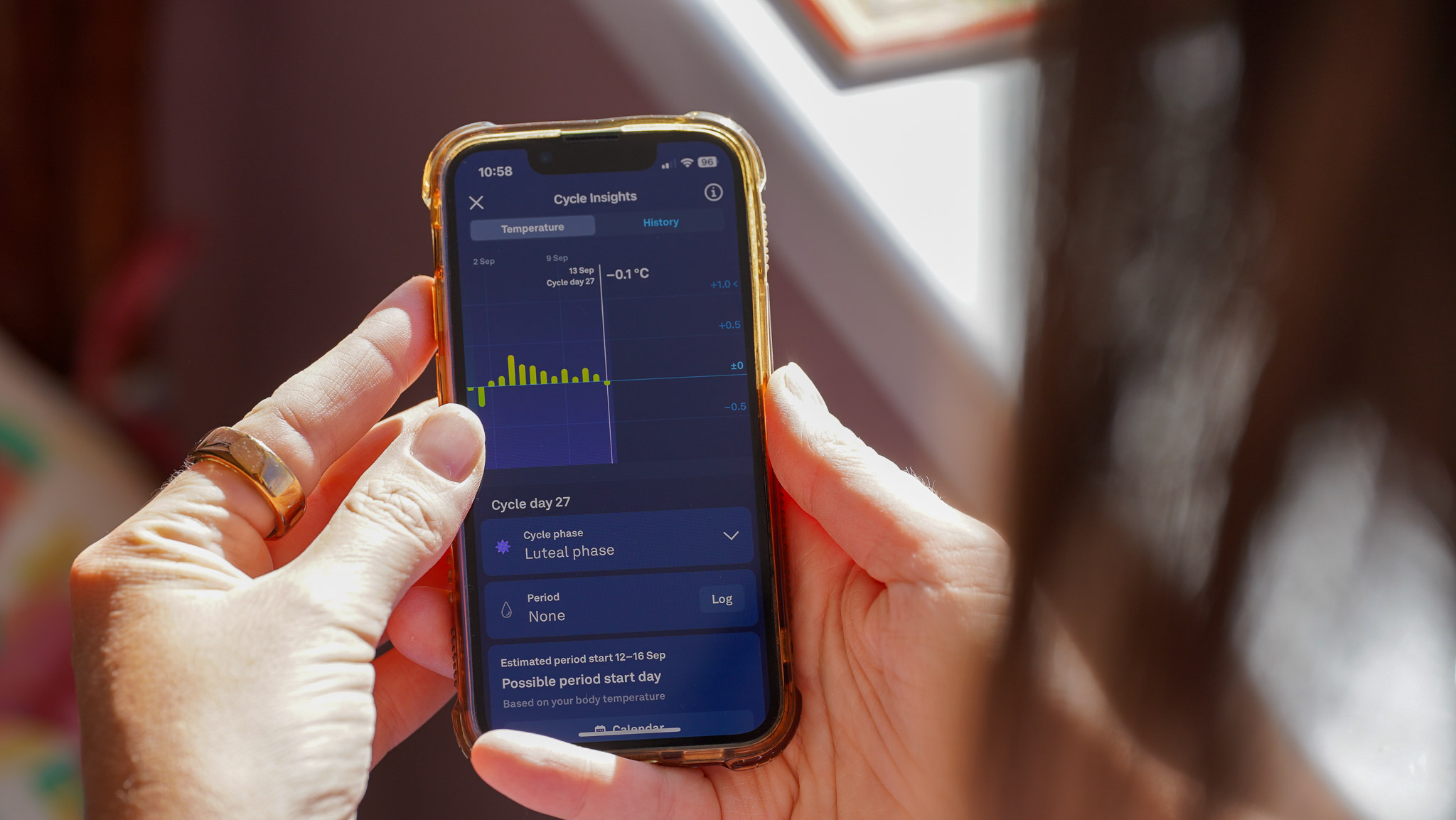
For me, the convenience of passive data collection combined with the accuracy of both the Oura Ring and Natural Cycles makes the whole experience effortless. I no longer need to remember to measure my temperature or input numbers manually; it’s all done for me while I sleep.
But, while I do enjoy using the ring, I do have a few gripes with the system. The Oura app gives basic information about which cycle phase I’m in, but it doesn’t allow me to log my mood or symptoms in the cycle-tracking section. Yes, there’s a general tagging feature in the app, but it would be so much better if there was a way to tag things like cramps, mood swings, or even sleep changes right within the period tracker itself.
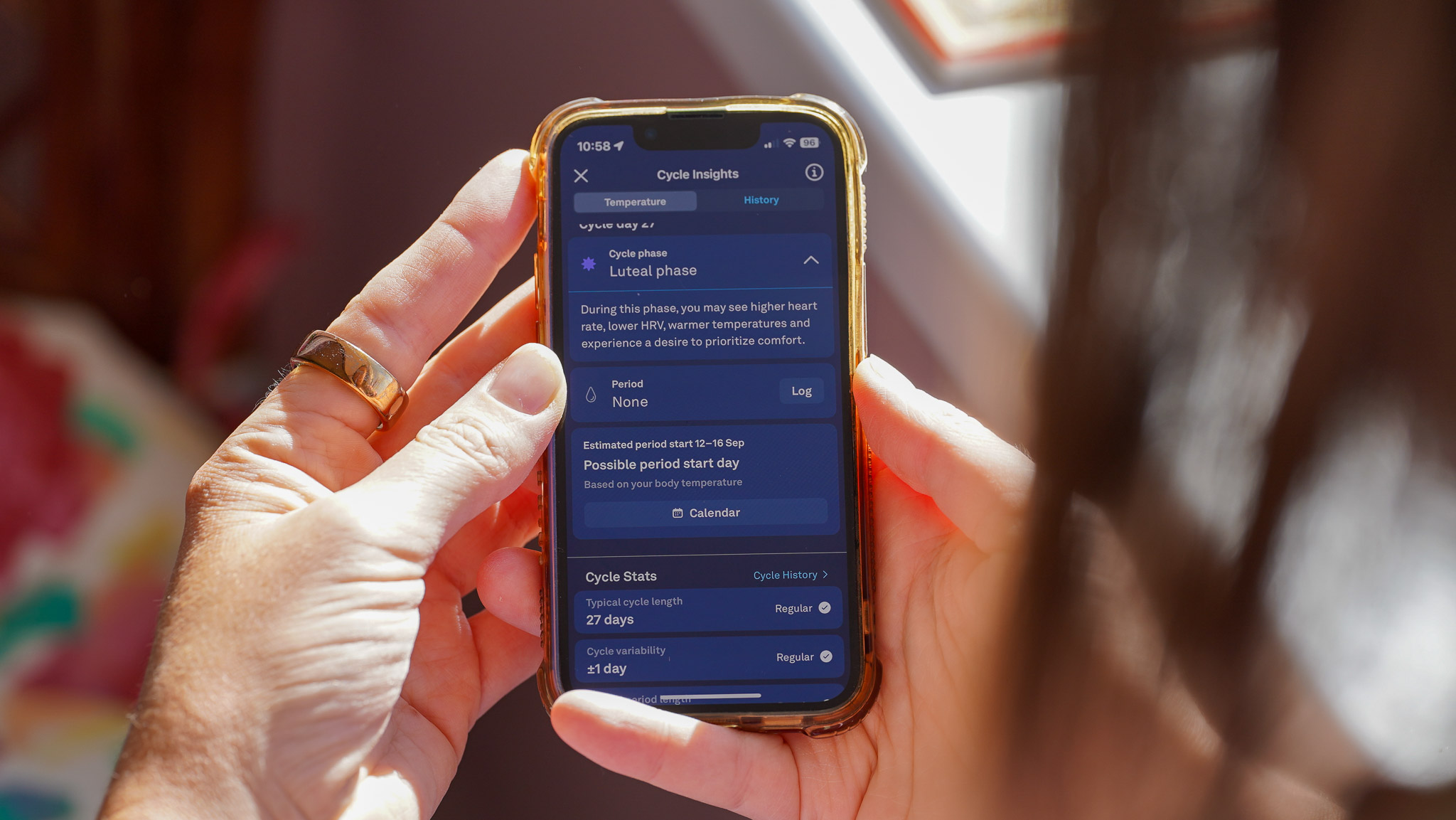
The app’s predictions for period start and finish are helpful, but it’s still up to me to manually log the actual start and end dates. While the cycle history feature is great for tracking long-term patterns, I’ve noticed that the system’s accuracy improves the longer you use it, which makes sense.
The Oura Ring’s cycle tracking feels a bit too simple, especially compared to other apps that offer similar features for free. The temperature tracking is definitely a highlight, and I’ve enjoyed the resources that come with it. Still, I can’t help but feel like more personalised insights and better integration with other aspects of the Oura app would make the experience even better.
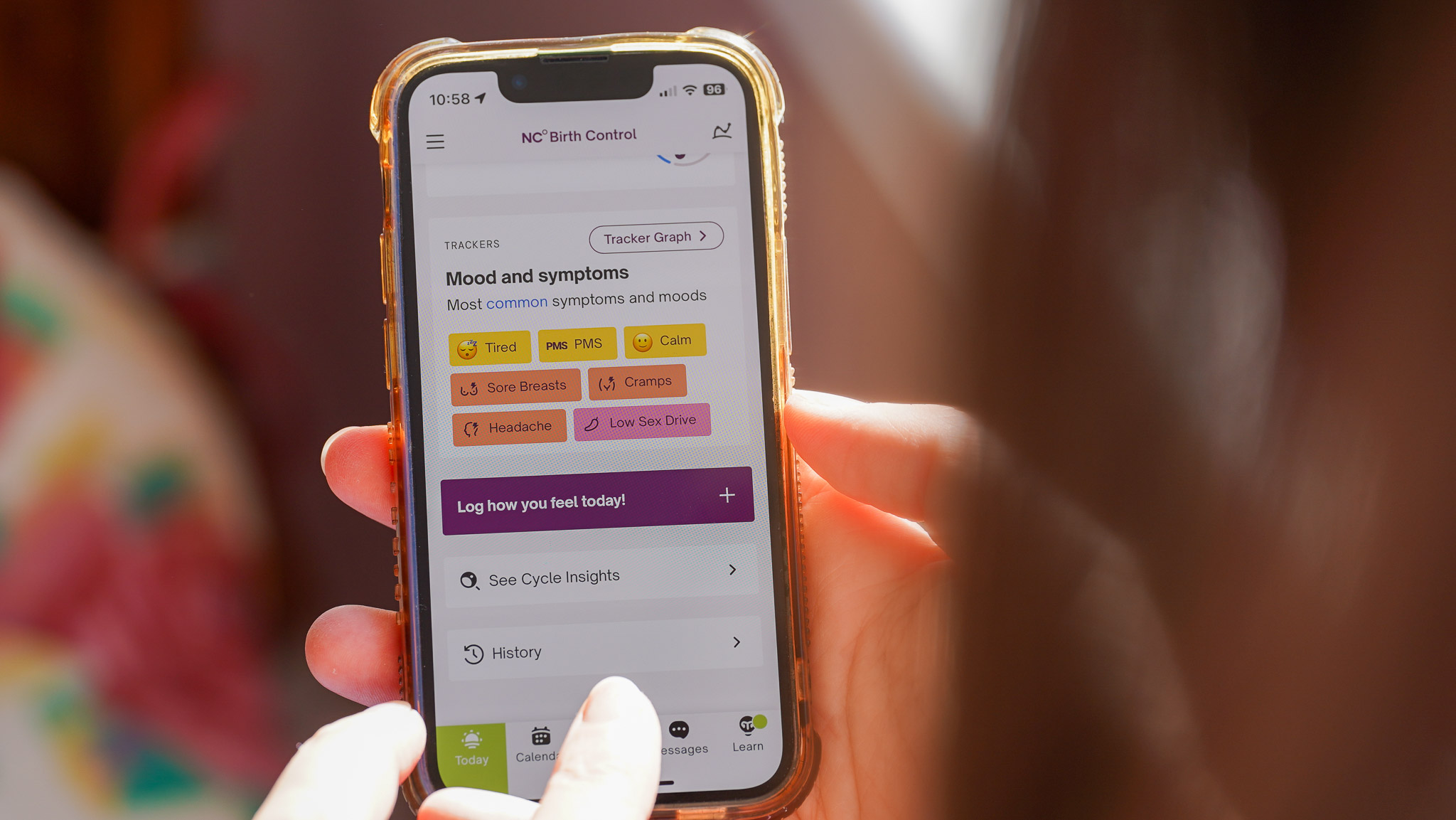
Natural Cycles offers a more detailed approach to fertility tracking. I love that I can log different aspects of my cycle, like mood, bleeding, intercourse, pain, and sleep. It’s packed with educational resources, and the quizzes are a fun way to learn more about my cycle.
However, despite its FDA clearance as a digital contraceptive, relying solely on Natural Cycles for contraception feels a bit too risky for me. It’s not that I doubt its effectiveness, but there’s just too much at stake if something were to go wrong.
Using the Oura Ring and Natural Cycles together has definitely added an extra layer of awareness to my day-to-day life. The convenience of having my temperature automatically tracked while I sleep is something I didn’t know I needed until I tried it. Gone are the days of remembering to grab the thermometer first thing in the morning – this ring does it all for me, and I hardly notice it’s there.
I also love seeing how the data adds up over time. Watching my cycle history develop, spotting patterns in how I feel during different phases – it’s empowering to have that insight. And when my predicted period start date matches up with how I’m feeling physically, it’s a reminder that this technology is actually working with my body.
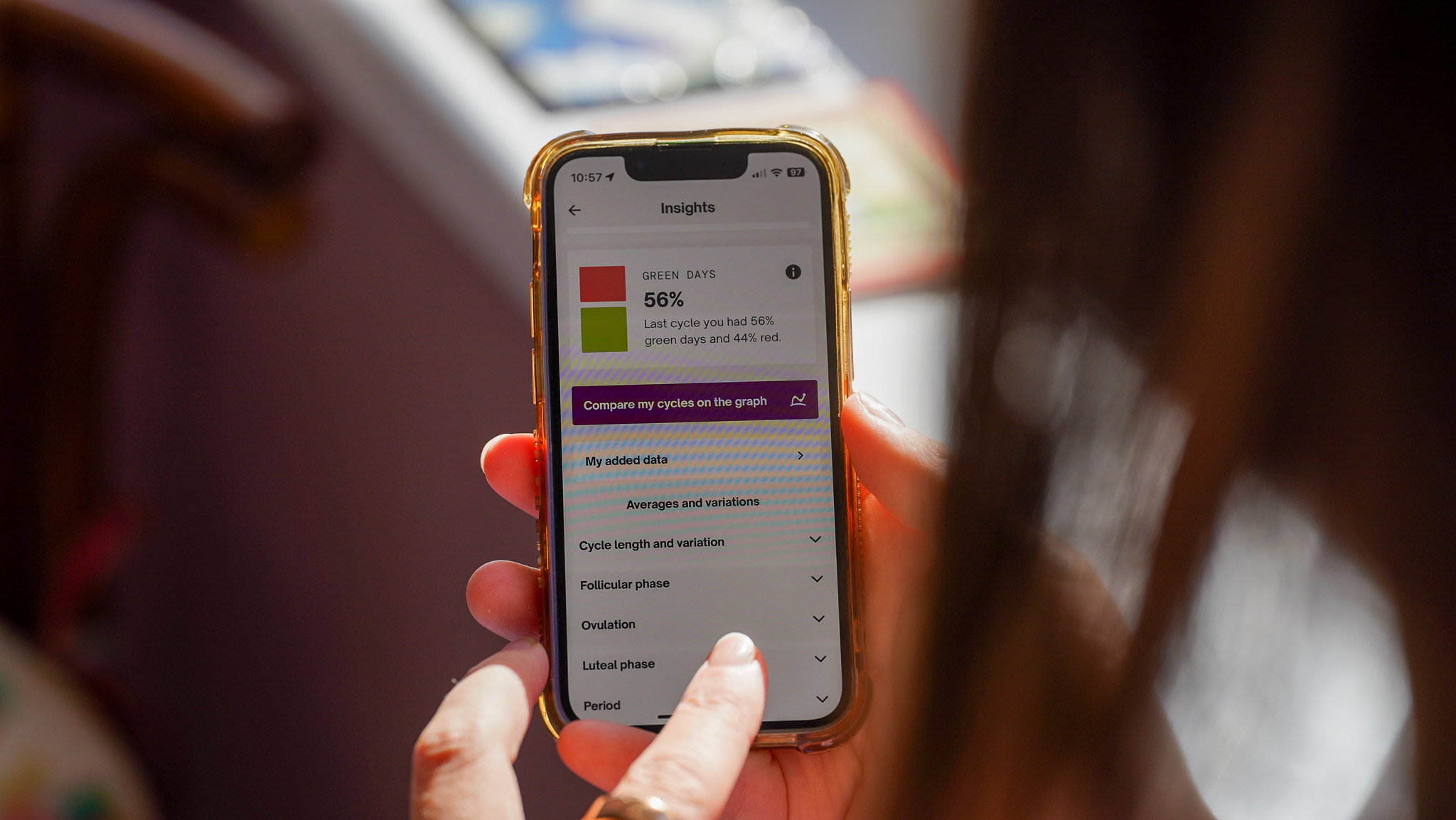
Natural Cycles has been a great addition to this routine, especially since it lets me log so much more detail about my cycle. The more I track, the better I understand what’s happening each month. Even the educational resources have been fun to dive into; they’ve given me a much deeper understanding of my own fertility and cycle than I ever had before.
In all, while both systems have their limitations, they’ve undeniably helped me feel more in control of my health and well-being.
For now, I’m sticking to a combination of the Oura Ring, Natural Cycles, and other contraceptive methods to stay on top of my fertility. It feels empowering to have all this information at my fingertips, even if the apps don’t come cheap.
The subscriptions do offer valuable insights into my body and overall well-being, especially with the Oura Ring, so I think it’s worth it. I plan to keep using them to learn more about my health, but I’m hopeful Oura will step up its game and make its cycle-tracking features more robust and personalised in the future.







